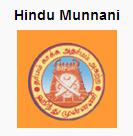 CHENNAI: The city police on Friday arrested a former member of banned terrorist organisation Al-Umma in connection with the murder of Hindu Munnani leader K P S Suresh Kumar last June.
CHENNAI: The city police on Friday arrested a former member of banned terrorist organisation Al-Umma in connection with the murder of Hindu Munnani leader K P S Suresh Kumar last June.
Investigators said Abdullah alias Mannadi Abdullah, apprehended by a police team led by assistant commissioner of police A Rajendra Kumar and inspector K Pugazhenthi from a hideout in the suburbs early on Friday, had funded the slaying of Suresh Kumar, secretary of Hindu Munnani’s Tiruvallur district unit.
A gang set upon Suresh Kumar outside his shop at Ambattur and hacked him to death on June 18, 2014.
Police charged Abdullah with murder and produced him before a magistrate who remanded him in judicial custody. Investigators named Abdullah as accused number 17 in the case.
The special investigation division criminal investigation department (SID-CID) had picked up Abdullah for questioning a few months ago. Investigators let him go after interrogation because at the time they had yet to conclusively establish his role in the murder.
An investigating officer said Abdullah was a key operative of Al-Umma, which the state government banned after the 1998 Coimbatore serial bombings that left 58 people dead and more than 200 injured.
Police first arrested Abdullah, who helped notorious ultra and Jihad Committee member Imam Ali escape from police near Tirumangalam in Madurai in 1992, in 2002 for conspiring to form the terrorist outfit ‘Muslim Defence Force’. A special court had acquitted Abdullah in the case on February 23 this year.
Police have so far arrested 15 people for the murder of Suresh Kumar.
Investigators believe a band of regrouped Al-Umma operatives killed the Hindu Munani functionary because of a hate speech he delivered against the Muslim community at a public meeting in Avadi in December 2013. Suresh Kumar sustained more than a dozen serious injuries, including a deep cut to the mouth, when the gang attacked him.





